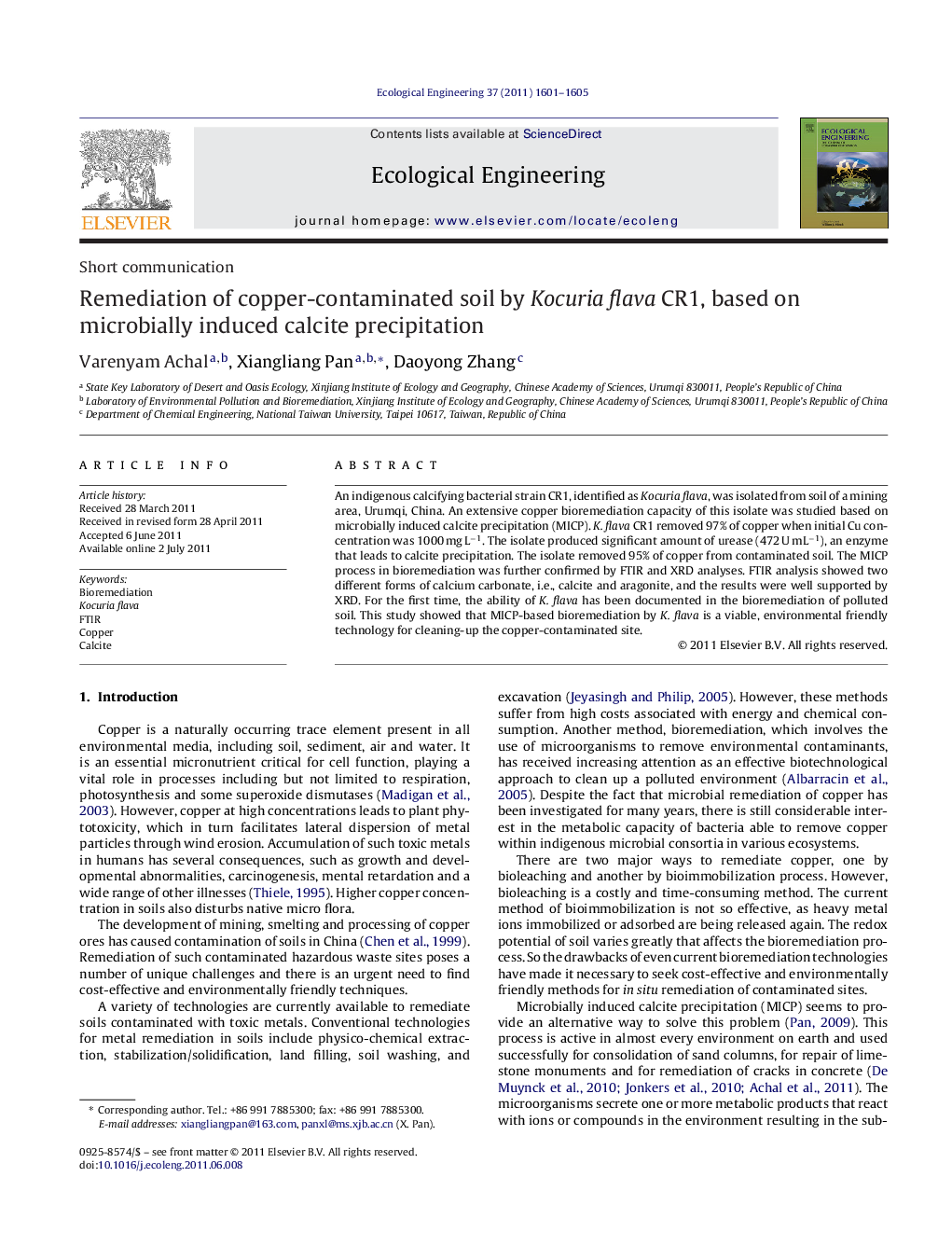| Article ID | Journal | Published Year | Pages | File Type |
|---|---|---|---|---|
| 4390285 | Ecological Engineering | 2011 | 5 Pages |
Abstract
An indigenous calcifying bacterial strain CR1, identified as Kocuria flava, was isolated from soil of a mining area, Urumqi, China. An extensive copper bioremediation capacity of this isolate was studied based on microbially induced calcite precipitation (MICP). K. flava CR1 removed 97% of copper when initial Cu concentration was 1000 mg Lâ1. The isolate produced significant amount of urease (472 U mLâ1), an enzyme that leads to calcite precipitation. The isolate removed 95% of copper from contaminated soil. The MICP process in bioremediation was further confirmed by FTIR and XRD analyses. FTIR analysis showed two different forms of calcium carbonate, i.e., calcite and aragonite, and the results were well supported by XRD. For the first time, the ability of K. flava has been documented in the bioremediation of polluted soil. This study showed that MICP-based bioremediation by K. flava is a viable, environmental friendly technology for cleaning-up the copper-contaminated site.
Keywords
Related Topics
Life Sciences
Agricultural and Biological Sciences
Ecology, Evolution, Behavior and Systematics
Authors
Varenyam Achal, Xiangliang Pan, Daoyong Zhang,
